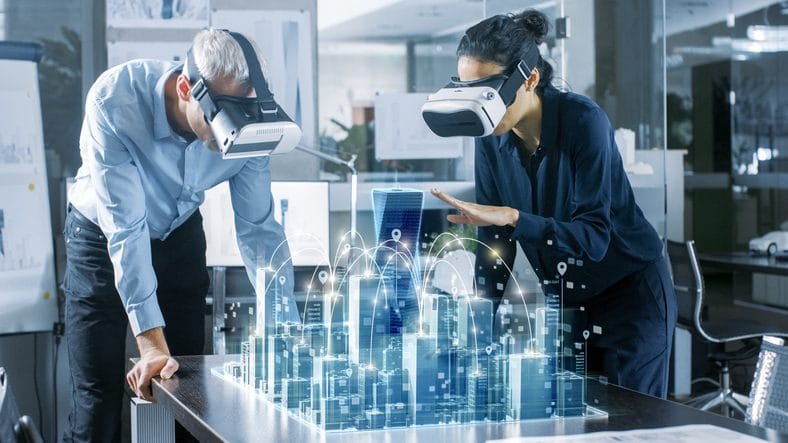
The future of technology
I. Introduction to technology evolution
Definition of technology:
Technology, in its essence, encompasses the application of scientific knowledge and tools to solve practical problems. It spans a broad spectrum, from the invention of the wheel to the contemporary world of smartphones and artificial intelligence (AI).
Historical perspective on technological advancements:
The history of technology is a chronicle of human innovation. From the invention of the printing press that revolutionized communication to the industrial revolution that transformed manufacturing, each era has been marked by groundbreaking advancements.
Impact of technology on society:
Technology has profoundly reshaped society. The advent of electricity changed the way we live, and the internet has redefined the way we communicate. These developments have had far-reaching effects on economies, cultures, and daily lives.

II. Current technological landscape
Overview of current technologies:
In today’s world, several high-impact technologies are shaping our future:
- Artificial intelligence (AI): AI systems mimic human intelligence and are used in diverse fields, from healthcare diagnostics to autonomous vehicles.
- Internet of things (IoT): IoT connects everyday objects to the internet, enabling smart homes, cities, and industrial processes.
- Blockchain technology: Known for its secure and transparent ledger, blockchain has disrupted finance and holds potential for supply chains and voting systems.
- Augmented reality (AR) and virtual reality (VR): These immersive technologies are altering gaming, education, and even remote work.
Role of big data and data analytics:
The ability to harness and analyze vast amounts of data is a game-changer. Big data and analytics drive personalized marketing, predictive maintenance, and scientific research.
Impact of technology on business and economy:
Technology has revolutionized business models, making e-commerce giants like amazon possible. The digital economy and tech startups have become major drivers of global economic growth.

III. Emerging technologies
Quantum computing:
Quantum computing leverages the principles of quantum mechanics, promising unprecedented processing power. It has the potential to transform cryptography, optimization, and drug discovery.
5g technology and beyond:
5g networks offer ultra-fast, low-latency connectivity. Beyond 5g, 6g is expected to usher in even faster speeds, enabling innovations like remote surgery and autonomous vehicles.
Biotechnology and genetic engineering:
Advancements in biotechnology are opening doors to gene editing, personalized medicine, and novel therapies, potentially revolutionizing healthcare.

IV. Future technological trends
Predictive analysis and machine learning:
Machine learning algorithms and predictive analytics will continue to enhance decision-making across industries, from finance to healthcare.
Sustainable and green technologies:
In response to environmental concerns, technologies focusing on sustainability, such as renewable energy and green transportation, are on the rise.
Human-machine collaboration:
The future will see greater integration between humans and machines. This collaboration will lead to new efficiencies, improved productivity, and even enhanced creativity.
Personalized healthcare and medicine:
Advances in genomics and AI-driven diagnostics will enable tailored treatment plans, optimizing patient outcomes.
Smart cities and infrastructure:
Cities are becoming smarter, with interconnected systems for transportation, energy, and public services, enhancing urban living.

V. Challenges and ethical considerations
Privacy and security concerns:
As technology advances, the risk of data breaches and surveillance increases. Striking the right balance between convenience and privacy is an ongoing challenge.
Ethical implications of AI and automation:
The ethical considerations of AI include issues like algorithmic bias, job displacement, and autonomous weapon systems. Society must grapple with these dilemmas.

VI. Impact on various industries
Healthcare and medicine:
Technology has enabled telemedicine, precision medicine, and remote monitoring, improving healthcare accessibility and outcomes.
Education and e-learning:
E-learning platforms and virtual classrooms have become essential tools, transforming education delivery worldwide.
Transportation and automotive industry:
Self-driving cars, electric vehicles, and ride-sharing services are revolutionizing transportation, promising safer and more efficient mobility.

VII. The future of work
Remote work and digital collaboration tools:
Technological advancements have made remote work and digital collaboration tools commonplace, changing the way we work and connect.
Gig economy and freelancing:
The gig economy, powered by technology platforms, offers flexible work arrangements but also raises questions about labor rights and social safety nets.
Upskilling and reskilling workforce:
As automation displaces some jobs, continuous learning and upskilling will be crucial to remain competitive in the job market.
Changing nature of job roles and careers:
Technology will create new job roles and redefine existing ones. Adaptability and agility will be key for the workforce.
In conclusion, the future of technology is a dynamic and transformative force that continues to shape our world. From AI and IoT to biotechnology and quantum computing, the evolving technological landscape promises both unprecedented opportunities and challenges. These advancements impact not only the way we live and work but also our ethical considerations, industries, and the very fabric of society. As we navigate this technological frontier, it is crucial to strike a balance between innovation and responsibility, ensuring that the benefits of technology are accessible to all and that ethical dilemmas are addressed thoughtfully. The future holds the promise of a more connected, efficient, and sustainable world, driven by the ever-evolving realm of technology.


